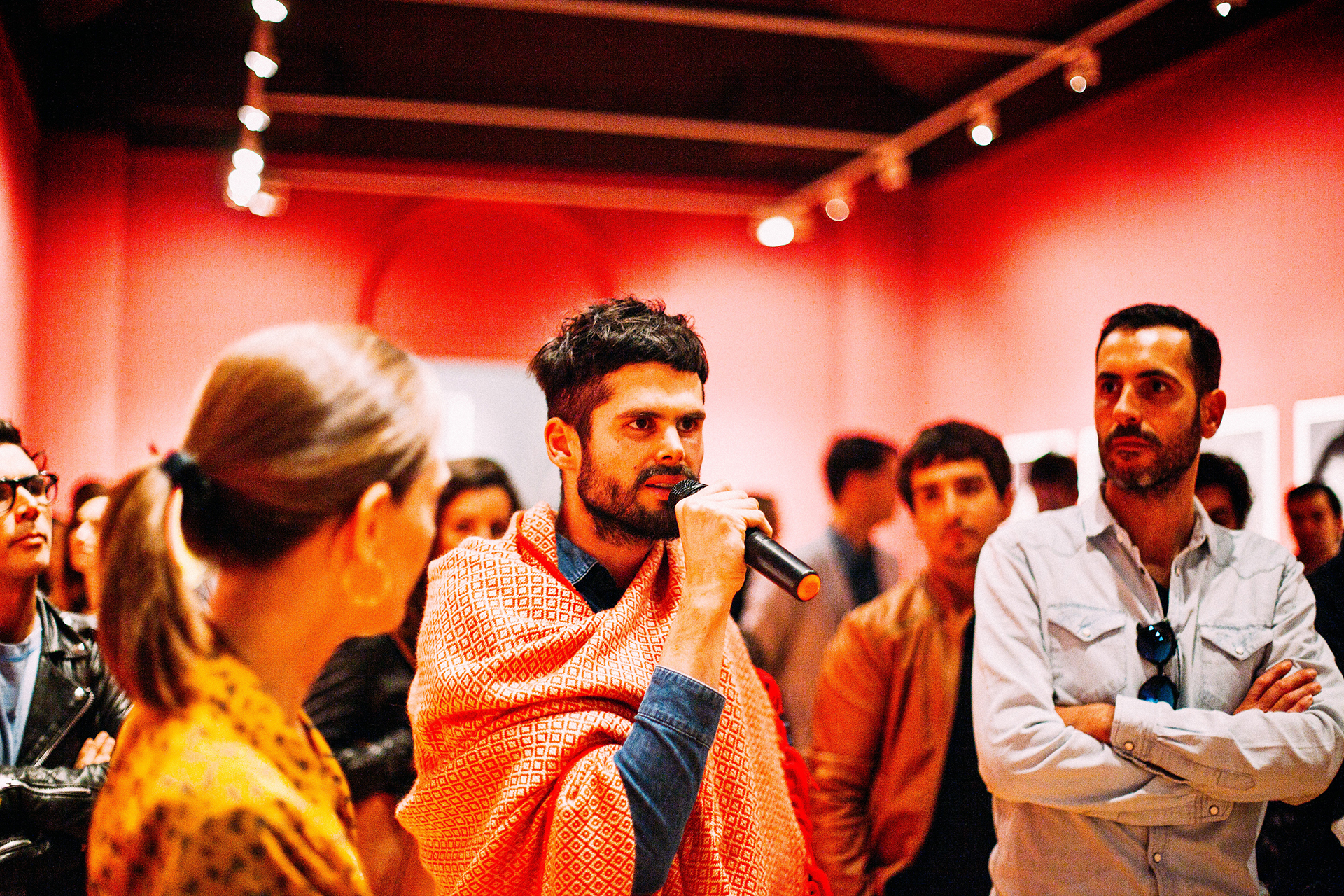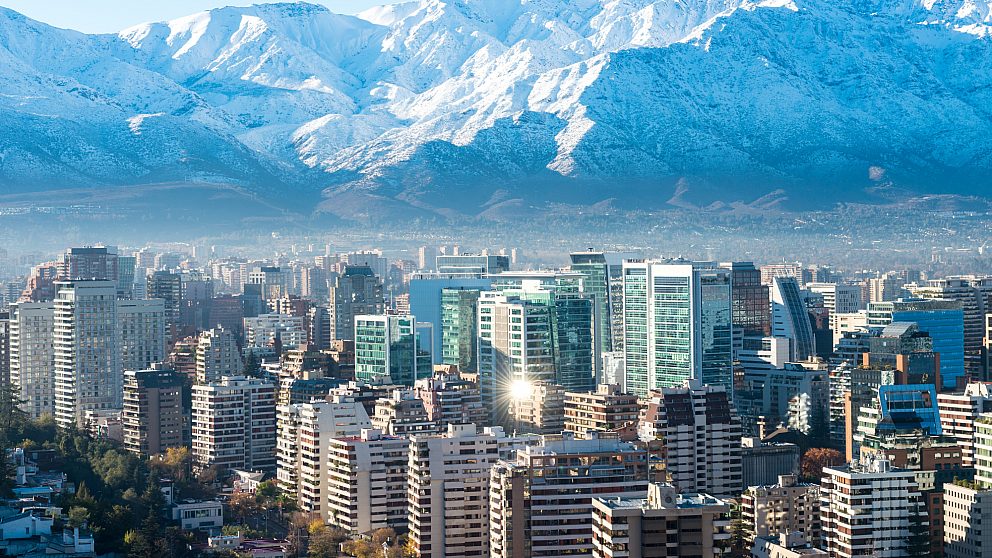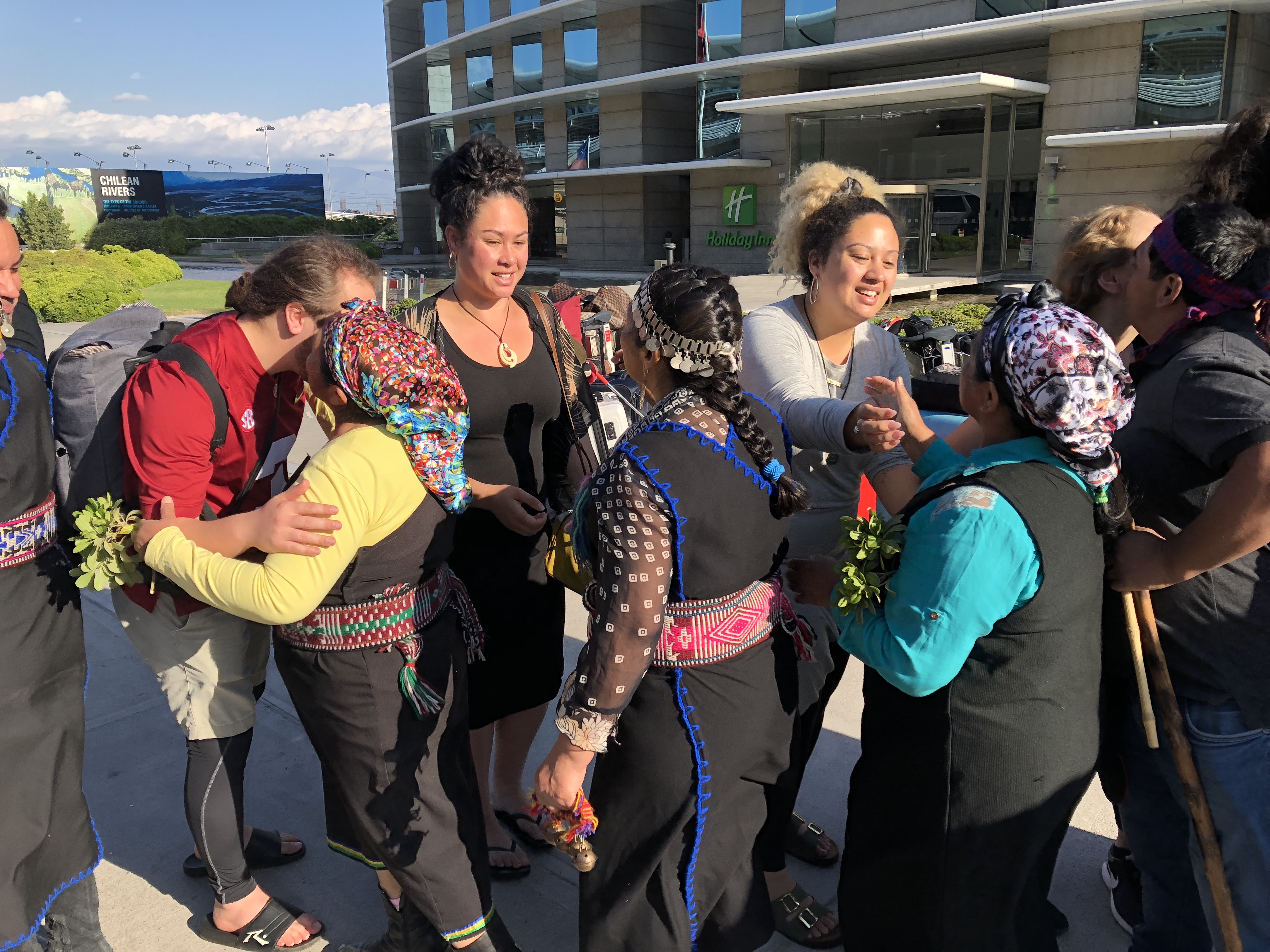Ordering food and networking at business events in Spanish pushed me well outside my comfort zone.
So the first night in Santiago, we went to a local burger restaurant for dinner. Incredibly tired and very hungry, we all found seats around the eating bar. After most likely completely messing up our food orders due to our very poor Spanish, a couple of us were seated next to a nice fellow customer called Joe, who spoke a tiny amount of English. We had a great conversation with him all evening in half Spanish, half English. We discovered that like a lot of people in Chile, Joe had no idea what New Zealand was, and we tried to explain our culture and what it is like in NZ. He told us about his career as a drummer (and showed us how to play the drums with the drumsticks he had on hand), and about his aspirations to travel the world- and now maybe visit NZ too! We exchanged social media and left knowing a few more Spanish words, and I’m sure Joe learned some more English too.
Overall, ordering food seemed to be one of the biggest struggles with the language barrier while over in Chile, but it also challenged us a lot to use our new found Spanish skills while also extending our vocabulary. This particular experience where we interacted with locals who spoke little to no English was not only the most amusing excursions on our trip but probably the most knowledgeable, where we learned the most about Chile’s culture and language. One of my goals on this trip was to truly push myself outside of my comfort zone, and trying heaps of new and uncomfortable experiences. Putting myself into a situation where I am not able to really understand a conversation I am having with a complete stranger was scary, but also one of the most enlightening experiences I had, where I learned the most. As someone learning another language, it showed me the power that immersion can have to rapidly increase the rate at which you learn and comprehend another culture and its language.
I really enjoyed visiting all the technology-related companies throughout our trip and learning about how they incorporated innovation and technology to create innovative products that have applications worldwide. Getting to meet these different entrepreneurs and hearing about the processes they went through building their high tech products was incredibly inspiring, and I would absolutely love a future getting to do just that. I particularly liked visiting Fractal and getting to see a working demo of their product, and the individual technical components involved. It was great talking to their team about how they transformed a mere idea to a product that is used around the world. I also really enjoyed talking to Motion Displays and hearing the story behind their business. They initially encountered a problem that most startups do- after building their product, they realised they did not reach their market very well and struggled to sell their finished and developed technology. After facing this first barrier, they identified the main issue with selling their product was the way it was being marketed through their agents and the way it was reaching their customers. The problem was that a lot of the agents didn’t have any technical knowledge on the product when it was needed, and they decided to set out and solve that problem. So instead of selling this new technology they developed, they instead designed an online interactive marketing platform to help improve the customer journey for other companies facing similar issues to what they had. Their software then grew rapidly and began to be used by companies internationally, and especially major companies in the US such as Apple and PayPal.
We had the amazing opportunity to work with some local students from the Grange School for the business challenge, where we pitched our YES businesses as if they are entering the Chilean market. I really enjoyed this particular challenge, as it encouraged us to gather all the information we had learned throughout the week about Chile, its people, business and culture, and also engaging with the students about their personal experiences when analysing how our business would fit into Chile. We decided to use my business, an automated vertical garden controlled through a phone app. It fit really nicely into Chile, where good quality fresh vegetables are often very hard to come by and are not very convenient to access. With plenty of apartments and small properties, vertical gardens are an incredibly convenient option for what many Chilean’s describe as a “lazy” or laid-back culture. Throughout our visits during our week in Chile, it was incredibly interesting to see how they market things differently compared to back in NZ. Most noticeably were a very strong feature of the idea of family, which we learned a lot about when talking to Suprole about the way they market. Interestingly they use the exact same products with the exact same packaging as Anchor in NZ, but they market them very differently in adds. Quite often the adds are extremely emotional and personal and sometimes very unrelated to the product, whereas in NZ we normally focus on key values such as quality and sustainability.
After our businesses pitches, we got the opportunity to network at a female entrepreneurs event. I used this opportunity to get myself out of my comfort zone and meet new people. Networking events themselves are scary enough, but when everyone is mainly speaking in Spanish and already all know each other, it is even more daunting. However, I had a lot of fun getting to speak to different people, both sharing my story, and learning about theirs. Overall I think this was one of the scariest experiences I had on this trip, and I now feel more confident in my networking skills.
- Mikayla Stokes, Western Springs College, Auckland


